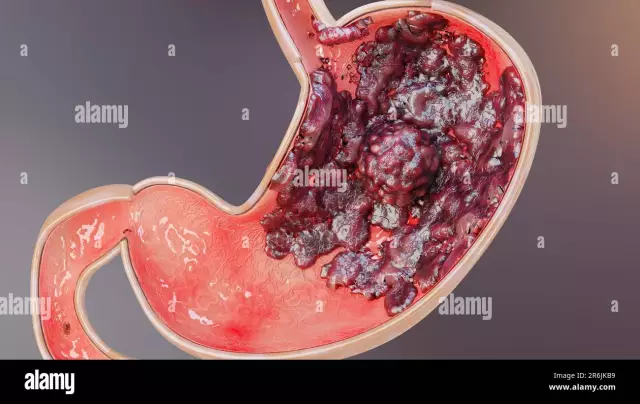- Author Curtis Blomfield blomfield@medicinehelpful.com.
- Public 2024-01-09 08:18.
- Last modified 2025-01-23 17:01.
Polycystic Ovarian Syndrome (PCOS) is one of the most common causes of female infertility, yet doctors say PCOS is not a disease. It cannot be cured, but it can be fought. What is it then? PCOS is a condition in which the ovaries are surrounded by a hard shell of immature eggs. In this case, the ovary cannot produce a dominant follicle, and therefore the woman constantly experiences anovulatory cycles. And without ovulation, pregnancy is impossible, so in this case we can talk about infertility.

Note that the ovaries are not working properly, a doctor can do an ultrasound of the pelvic organs, but ultrasound alone cannot diagnose PCOS. The reasons for its occurrence are very deep, and therefore, before the verdict is passed, the doctor must prescribe several more types of examinations that will confirm or refute the diagnosis.
For polycystic ovaries:

In order to confirm the diagnosis and understand how to treat PCOS, it is necessary to know the level of certain hormones in the blood. The direction for the delivery of certain tests will be given by the doctor. As a rule, donate blood for prolactin, LH and FSH, TSH, progesterone and androgens. Deviation in the indications will indicate the incorrect functioning of specific organs and will allow you to prescribe the correct treatment. So, for example, if the ratio of LH and FSH hormones is more than 2.5, the doctor may prescribe the drug "Metformin" or "Siofor". With elevated TSH readings, the endocrinologist will show you to drink the medicine "L-thyroxine". Low progesterone, which can also be characteristic of PCOS? This is corrected by taking Duphaston. Ovulation stimulation can also be prescribed, during which several follicles immediately mature and the ability to conceive increases significantly. However, such manipulations are not recommended more than six times in a lifetime, since when taking drugs, the ovaries are greatly depleted.

However, the first thing that is advised to women who plan to have children is to lose weight. It is important to normalize your diet, minimize the consumption of sugar and carbohydrates, and lead an active lifestyle. All this will lead to weight loss, will go awayfat, and with it a dense shell on the ovaries, which interferes with the maturation of follicles and ovulation.
If conservative treatment has not led to the desired result after the allotted amount of time, an operative intervention in the form of laparoscopy is prescribed. This operation is carried out by experienced surgeons who, through small holes in the abdomen, remove the dense membrane with special small scissors or resect the ovaries. As a rule, after laparoscopy, ovulation is restored, and the possibility of becoming pregnant in the coming year increases significantly.






